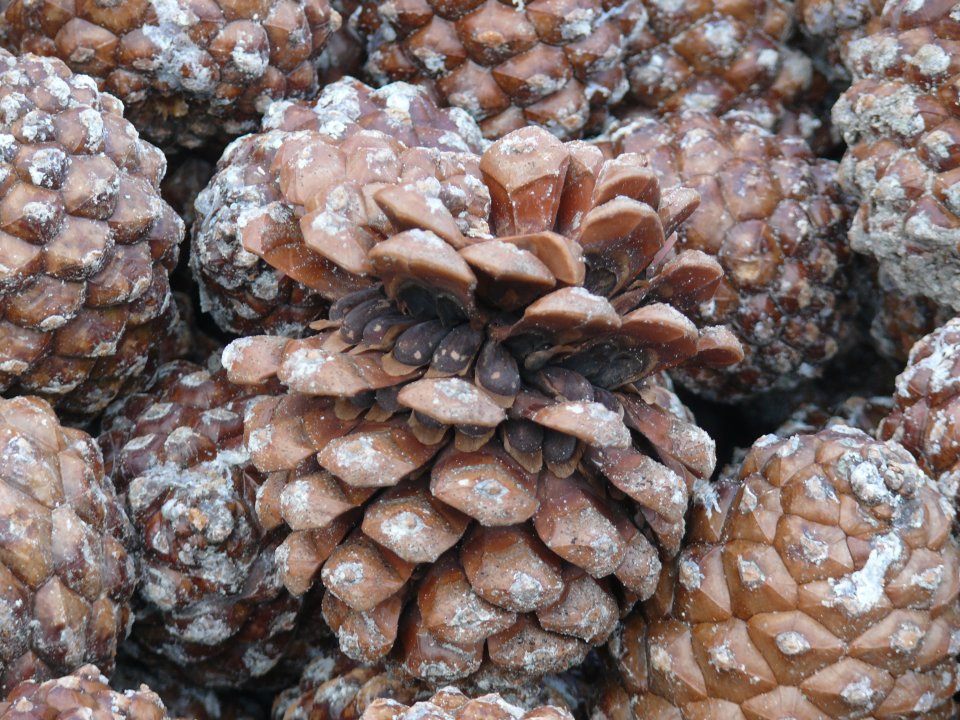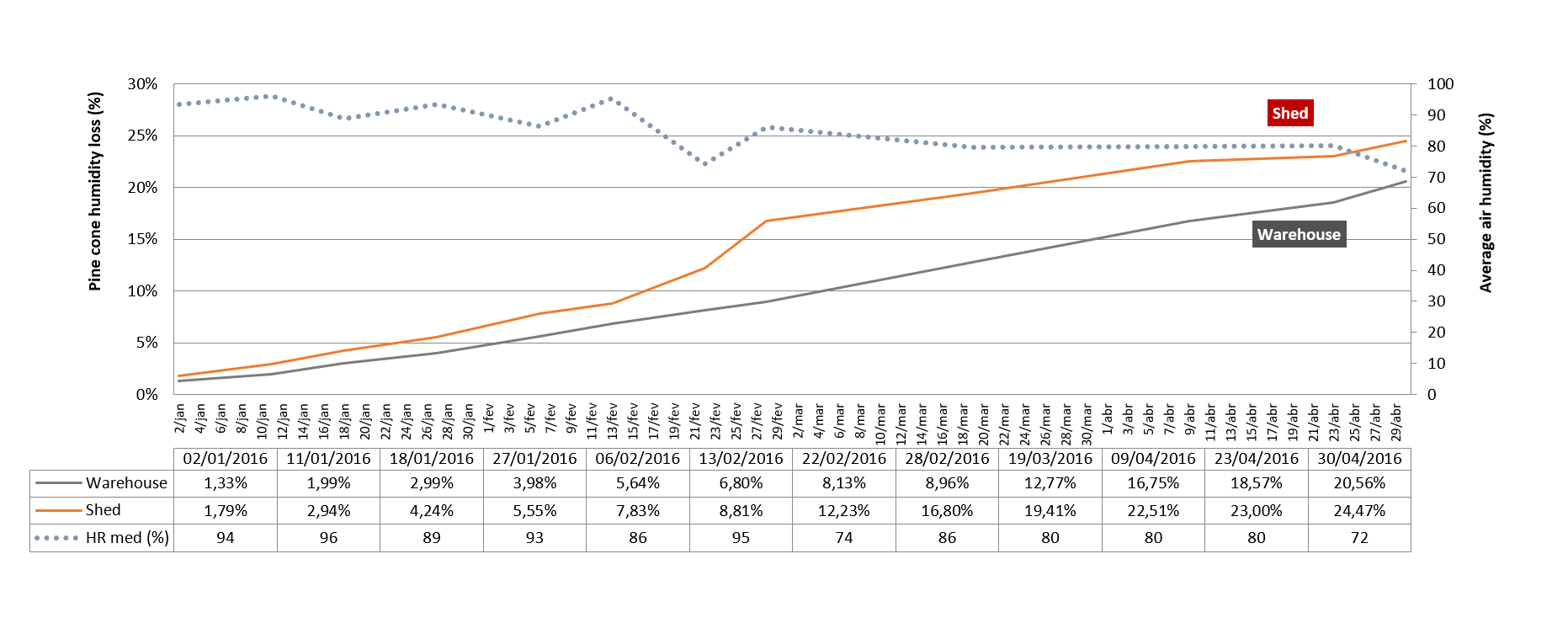
The objective was to evaluate the loss of moisture in pine cone during the storage after harvest, comparing the storage inside a warehouse or just under a shed. This information is intended to support the producer in deciding when to sell, at the beginning, during or at the end of the commercialization campaign, taking into account not only the market price / kg but also the weight loss of the pine cone due to the loss of moisture.
In Portugal, most of the pine cone businesses are still carried out without real knowledge of the quantity traded, which makes it difficult to monitor the market price, since the sales values considered (€/kg) do not always correspond to the real price.
Currently it is not possible to predict the pattern of evolution of the price of the pine cone annually throughout the campaign. The option to harvest the pine cone and store it for later marketing will have to consider the decrease in the weight of the pine cones associated with the moisture loss.
The local landowners association APFC, took the initiative of this study, weekly monitoring the pine cones weight evolution in each set (warehouse or shed).
Monitoring the loss of moisture from the pine cone harvested in December (2015) over 4 months (April / 2016) by packaging 30 kg of pine cone in two mesh bags that were weighed weekly and with two storage options: outdoors free - under shed (excluding rain) or in a closed warehouse, allowed to obtain the following results:
• Moisture loss of 21% (pine cone kept in the warehouse) and 24% (pine cone outdoors under shed) at the end of April;
• The effect of the average relative humidity of the air was verified mainly in the pine cone stored under a shed, whose weight loss was accentuated when the relative humidity of the air decreased (increasing the dryness);
• The pine cones stored in the warehouse had a more constant weight loss over time.
- Know the real productivity of your pinewood (Pinus pinea), carrying out the annual weighing of the pine cones produced;
- The pine cone market doesn't has a fixed price, and there may be differences related to the quality of the pine cones, in terms of its kernel yield, but may also occur as a result of the law of supply and demand or in response to price variation in the final market of pine nuts in the consumer (http://www.llotjadereus.org), so it's necessary to follow the market price evolution during the pine cones harvesting season, for instance by contacting your local Forest Producers Association;
- Carry out an analysis of the pine cone yield in pine nuts.
The study was carried out considering only a small amount of pine cones (30 kg). Larger amounts of pine cones will evidently have a moisture loss curve different from the one presented, due to less air circulation in the pile of pine cones.
No information was included about the quality of the pine nuts obtained after 4 months storage in this study. Storage must be carried out under appropriate conditions that prevent the development of pests that may decrease the kernel yield from the pine cones.
- Establish protocols for determining the humidity of the pine cone, nonexistent to date;
- Study the moisture loss curve for higher amounts of pine cones;
- Study the impact of relative humidity variation in the pine cone moisture loss curve;
- Establish recommendations for the storage of pine cones, listing the necessary conditions so that there is no loss in terms of quality and pests contamination.
Conceição Santos Silva, mcsilva@unac.pt, http://www.unac.pt/
Further information
- Song, K., Yeom, E., Seo, S.J., Kim, K., Kim, H., Lim, J.H., Lee, S.J., 2015 – Journey of water in pine cones. Nature Scientific Reports. DOI:10.1038/srepo9963.
- UNAC, 2014 - Guia de colheita e comercialização da pinha. Lisboahttp://www.unac.pt/index.php/documentos/publicacoes/46-guia-de-colheita-e-comercializacao-de-pinha/file
Conceição Santos Silva

Comparison of the pine cone moisture loss stored in a shed or in a warehouse. APFC, 2016.
